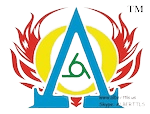First of all, I conduct this research without my participants knowing about their answers will be recorded and analyzed. The participants for my current research come from three different kinds of social clubs’ activities with on-the-spot topics each week. The first club from the English club activity and participants in this club come from different kinds of professions and enthusiasm on improving their English skills. The second club from the Founder club activity, which is a club full of businesspeople. And the last is the third club from the Bookclub activity, which is full of a nerd. These unnotified research participants indirectly volunteered on answering the question based upon their thoughts and experience with the mercy of questions I have about human education in terms of curriculum.
Now, with such a different kind of background and activities in my social clubs, then let’s say in general the story begins as we go to an educational institution, and we see a man who’s definitely not a known actress people, but the person got physical attraction, in such a way that makes the person like smart. I want to know, is there an intellectual connection? Like does a person’s outward swagger and smooth-talking send a message of intellectual potency? Meaning, the person that able to share their idea clearly and systematically, as we know in the research by Fugen Neziroglu, Sony Khemlani, David Veale (2008) stated “one can learn that physical attractiveness leads to rewards” and by Dr. Thomas Cash (2019) “physical attractiveness and the impact of perceived attractiveness upon a range of outcomes including in social and professional situations.
Secondly, the idea came because as a human on some psychological phenomenon, we are superbly biased, therefore, I hope with the natural answer from my participants then this minimize the biases, especially we know about most humans are bigoted, which is most of us doesn’t even know how biases we are. With that the reason to not let any of my indirect participants know is I hope I can get the information as naturally as possible from my participants. The terms of as natural as possible meaning as bluntly as possible with their confidence within their idea or word that came out because they have translated it the word or because they thought it is what it must become, or because of the experience. Take an example if my participants know about their word will be recorded and analyzed, then they will try to behave on answering with choice of selection word, on the other hand, if they didn’t know it got recorded in the first place, then they will just be expressing it as they want without even worry if their answer will be wrong or correct. Therefore, within those variants of reason upon the terms of reasoning, this has brought me to several interesting ways on how they define it, but like Ewing (2013) stated “the concept of curriculum is difficult to define easily, and partly because it means different things to different people.”
Thirdly, by the mercy of secret experiments, I’ll explore their thought through a series of continuity questions and actions according to answer that can touch my purposes. The typical question that can go into a deep dark cavernous corner of the idea of education they currently have, like does being a great teacher means the teacher got some potent education? Can being Professor becoming a great teacher? Meanwhile, the typical action that I was putting like giving them such activity throughout simple games of bluffing, or speedy in Halli Galli Games, and analysis like Mr. Jack. By the end due to the current time limit of this research, therefore, further analysis will be needed to find the holistically meaning in the curriculum.
Lastly, like been mentioned by Prof. Jean Clandinin (2012) people live and tell stories and that’s our way of thinking about the experience. The stories that people can be accepting will even be much greater if this can be initiated throughout such a content that can be related not only in our life experience, that we have noted it, analyze it, also we like to evaluate our own to a greater of human knowledge. In the end, I learned throughout this such topically activity that initiated by such a thesis can lead the group into a form of thoughts that more lively, which also can bring me as the researcher to analyze it more concern in a way of how humans learn and how we should design a curriculum to prepare educators who have the competencies and dispositions to work effectively with diverse students (Anstrom, 2004).
Reference:
1. Anderman, E.M. & Anderman, L.H. (2009). Culturally Relevant Pedagogy. In Psychology of Classroom Learning: An Encyclopedia. Publish by Macmillan Reference USA. Retrieved from: http://link.galegroup.com/apps/doc/CX3027800087/GVRL?u=lirn17237&sid=GVRL&xid=c34926f4
2. Ewing, R. (2013). Curriculum and assessment: storylines. (2nd Ed.). Australia and New Zealand: Oxford University Press. Retrieved from: https://web.archive.org/web/20210413151810/http:/lib.oup.com.au/he/Education/samples/ewing_curriculum2e_sample.pdf
3. Fugen Neziroglu, Sony Khemlani, David Veale. (2008). Social Learning Theory and Cognitive Behavioral Models of Body Dysmorphic Disorder. Retrieved from: https://doi.org/10.1016/j.bodyim.2008.01.002.
4. MikeO. (2012, September 16). A short video interview with Prof. Jean Clandinin. Retrieved from A short video interview with Prof. Jean Clandinin.
5. Rachel F. Rodgers, Jenna Campagna, Raihaan Attawal. (2019). Stereotypes of Physical Attractiveness and Social Influences: The Heritage and Vision of Dr. Thomas Cash. Retrieved from: https://doi.org/10.1016/j.bodyim.2019.01.010.
